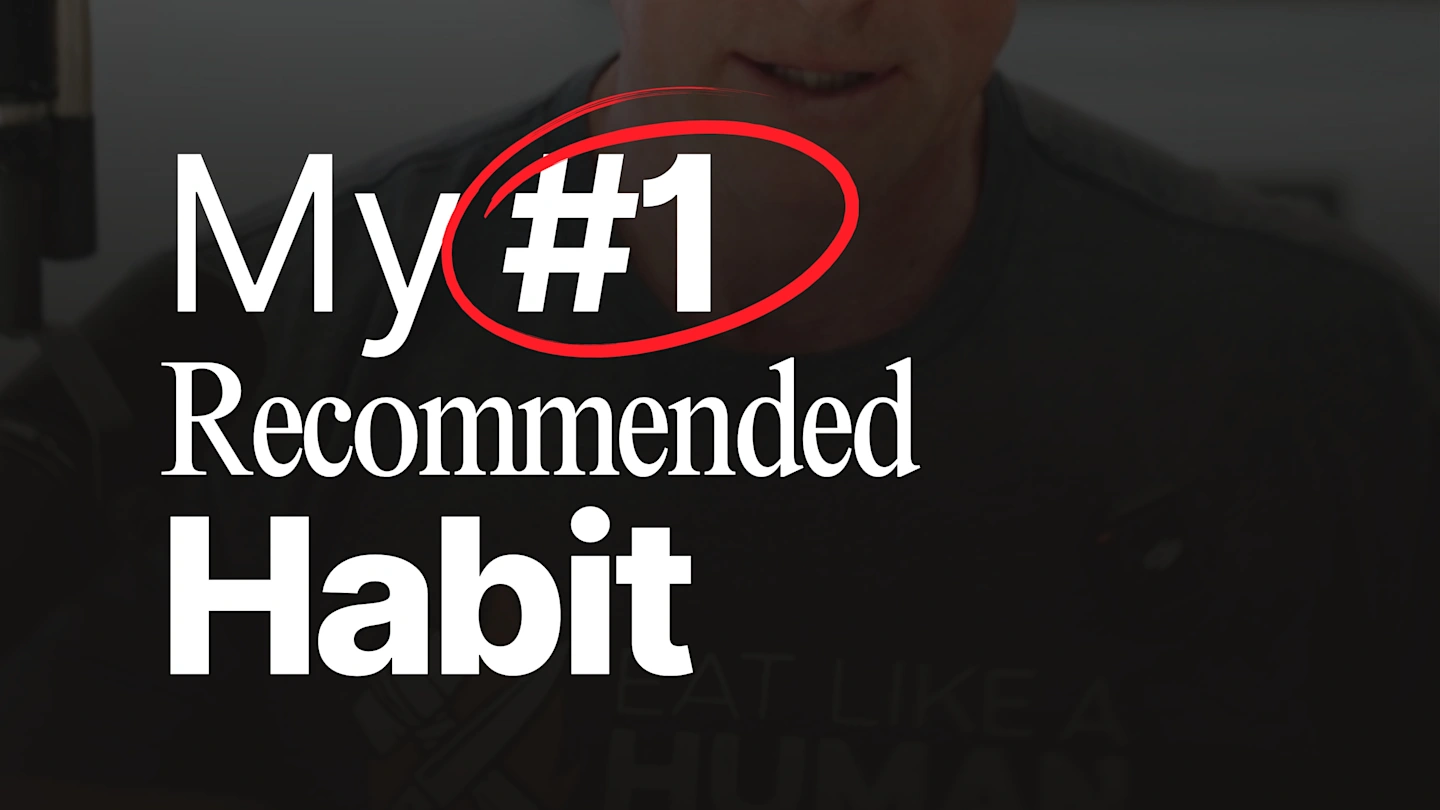Your Lifestyle Is the Real Biohack: Why Basics Still Outperform Gadgets
Before you touch a supplement, a cold plunge, or an HRV tracker, you need to look at the core systems that run your body: sleep, sunlight, movement, nutrition, and stress. The real work is in the basics. Going to bed at the same time. Getting morning sunlight. Training intelligently. Eating food that came from the ground or once moved on its own. Learning how to hit the brakes before stress runs your nervous system off a cliff. None of it is flashy, but it works every time. We live in a world of overstimulation and under-recovery. We’re always “on,” always seeking the next edge. But if you’re chronically tired, inflamed, anxious, or underperforming – your edge isn’t in the next device or drug. It’s in the boring stuff you’re still not doing.
Read full article ▼
I get it. Hacks are sexy. Whether it’s a smart ring tracking your readiness score, a freezer turned into an ice bath, or the latest peptide cycle promising shredded abs and superhuman recovery – it all sounds more appealing than “go to bed on time.” But here’s the problem: most people are using these tools to try to optimize a system that isn’t even functioning properly. You wouldn’t install a turbocharger on a car that’s leaking oil, misaligned, and running on bald tires. Yet that’s exactly what most people are doing with their health. Before you touch a supplement, a cold plunge, or an HRV tracker, you need to look at the core systems that run your body: sleep, sunlight, movement, nutrition, and stress. Those aren’t add-ons. They’re the operating system. The temptation to jump into advanced recovery tools is understandable. We’ve all been there – especially high performers. You want an edge. You want to feel better, faster. But you can’t shortcut biology. Your hormones, metabolism, immune function, and nervous system aren’t responding to the latest wellness trend. They’re responding to how you’re living. How much deep sleep are you getting? When’s the last time you saw the sun before noon? Are you eating real food or cycling through protein bars and energy drinks? How often do you move your body – not just train, but walk, stretch, sweat? Those inputs control the very systems you’re trying to optimize. Supplements won’t undo poor fundamentals. Cold plunges won’t erase the toll of chronic stress or a shredded sleep schedule. Meditation doesn’t cancel out a junk-food-fueled day spent glued to a screen. I’m not anti-supplement. I created a sleep supplement because I needed one. At the time, I was the physician for the West Coast SEAL Teams. My SEALs were addicted to Ambien, and we needed a tool to help them come off it without destroying their performance. But it was never meant to replace the basics. It was a bridge. Same with red light, sauna, cold exposure, wearables, IV drips – they can all play a role. But they’re supplemental. They support a system that’s already functioning. They aren’t the foundation. When clients come to me, especially the high achievers, they usually have two things in common: • A drawer full of high-end supplements and gadgets • A lifestyle that’s wrecking their health The real work is in the basics. Going to bed at the same time. Getting morning sunlight. Training intelligently. Eating food that came from the ground or once moved on its own. Learning how to hit the brakes before stress runs your nervous system off a cliff. None of it is flashy. But it works. Every time. We live in a world of overstimulation and under-recovery. We’re always “on,” always seeking the next edge. But if you’re chronically tired, inflamed, anxious, or underperforming – your edge isn’t in the next device or drug. It’s in the boring stuff you’re still not doing. So before you reach for the next quick fix, ask yourself: Are you treating your body like a machine to enhance? Or a system to support? Because if you support the system, it’ll enhance itself. Dr. Kirk Parsley is a former Navy SEAL turned physician, widely recognized as a leading authority in health optimization and human performance. After his military service, he earned his medical degree from the Uniformed Services University of Health Sciences and went on to serve as the physician for the West Coast SEAL Teams—where he pioneered innovative approaches to sleep, recovery, and resilience for some of the world’s most elite operators. Today, Dr. Parsley is a sought-after expert in sleep science, hormone optimization, and functional medicine, working with top-tier athletes, high performers, and military leaders. His mission is clear: to elevate physical and cognitive performance by addressing the foundations of human health—starting with better sleep.

